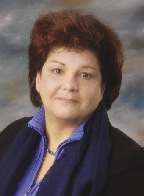The value or most probable sales price of a restaurant business calls for expertise and ethics. There are a number of pieces that make up the whole pie and it would be wise to use a state licensed, industry knowledgeable and well credentialed broker.
Most restaurants that are strong and growing are rarely offered for sale unless retirement is a factor. Even then, the trend of sales from year to year should be considered by the broker. For instance, if there has been a drop in sales, particularly a steady drop, it is the broker's job to find out why from the seller. Misleading reasons for selling usually become known if not provided by the seller up front, and could be more damaging if this fact is known later rather than sooner
Buying a restaurant is a major financial commitment and an experienced broker can be a tremendous asset for a successful transaction. It should be taken seriously and looked into in terms of not only financial rewards, but "a way of life" since restaurants historically are one of the most difficult retail type businesses to own or run. Many buyers rely on a broker to identify a restaurant business for sale. It is critical that the broker pave the way for the buyer to move toward the purchase in streamline and organized fashion. Many sellers or owners rely on a broker to provide a sales price/evaluation and marketing plan for the restaurant they would like to sell.
In evaluating the value of an ongoing restaurant the broker's first step should be to review the financial aspect of the restaurant. Anywhere from 3 - 5 years of tax returns could be necessary and 1 - 2 years of State Sales and Use Taxes paid.
Key expenses and dollar amounts need to be looked at including trends or inconsistencies as well as particular line items that are key.
Cost of goods should be analyzed. A knowledgeable broker would compare industry standard costs on liquor and food. If there is substantial deviation from these standards, it could mean any number of things, but the broker should find out facts. There could be any number of problems such as goods are not being purchased at optimum prices, possibly inventory issues, menu prices could be too low, or product could be walking out the back door.
Payroll is another key expense. As a percent of sales is this in line with industry standards? Is someone on the "books" due to family work arrangements? Possibly family members support the operation, but aren't paid at all. The broker could require a list of employees, functions and rate of pay to understand this more fully.
Rent is a major component. Again as a percent of total annual sales does it fall in line with industry standard numbers? What are comparable market rental rates in the area? The broker should pull all data available to arrive at this.
The broker should analyze rental comps and subject rental rates/terms. Does the restaurant support current, rental rates? The broker should be aware if the landlord is flexible. If a landlord is faced with a failing restaurant tenant he/she may prefer to reduce rates particularly in the beginning of a new long lease term to ensure the rent keeps rolling.
Advertising costs and the breakdown of the annual expense is critical. The broker should know what is being spent for various types of advertising including any reoccurring expenses such as contracts with certain media companies or internet.
All other deductions are where a lot of expenses are dumped. The supporting schedule of this expense has a breakdown of various expenses such as insurance, office, professional fees, etc. The broker should look at any highs or lows from year to year and find out reasons.
A broker without specific knowledge of the restaurant business could cause more damage than good and lead to serious financial losses for both buyers and owners/sellers. It is an ethical broker who will take responsibility to properly and fairly evaluate restaurant businesses.
Geri Jacobson is a broker/associate at Coldwell Banker Calabro & Associates, Rocky Hill, Conn.
Tags:
Why do you need a knowledgeable and ethical broker when persuing the P&S of a restaurant business?
March 04, 2009 - Connecticut









